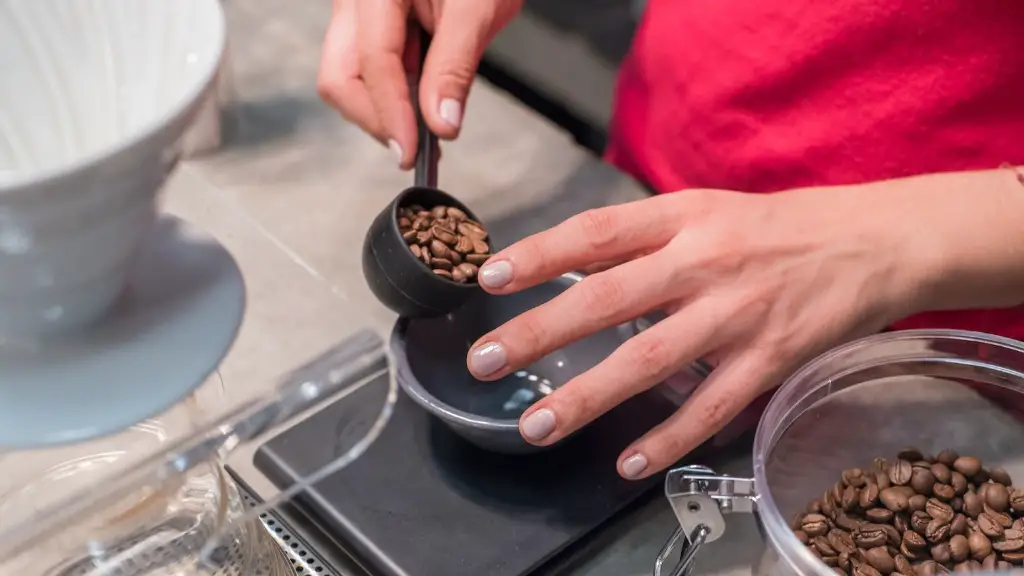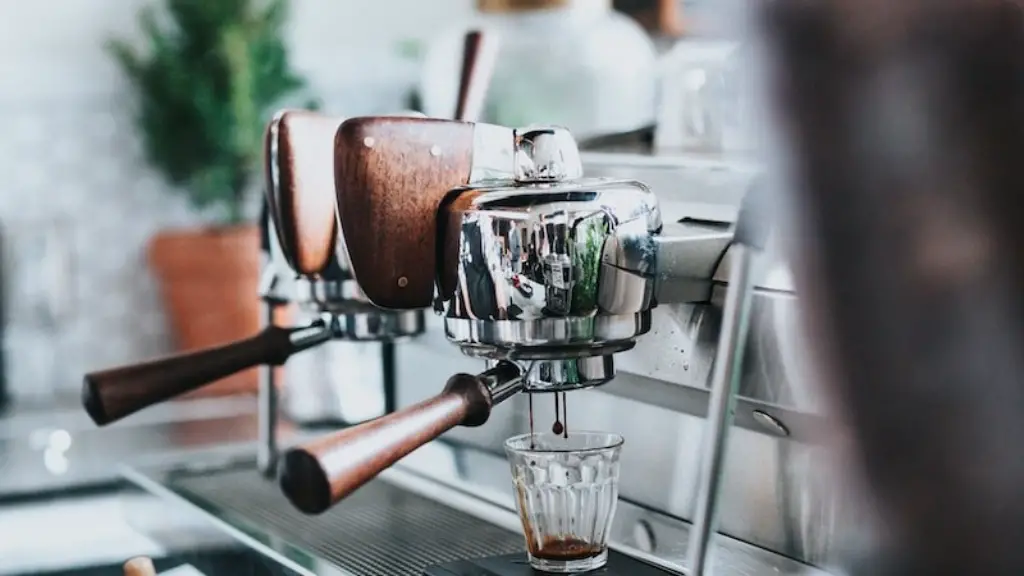Coffee Storage and Health Issues
Whether it’s a morning energy boost or an afternoon pick-me-up, coffee is one of the most popular drinks in the world. But did you know that the length of time your coffee sits on the shelf can affect its safety? Studies have shown that drinking old coffee can put you at risk for various illnesses and health issues.
Coffee beans will eventually go stale if they are stored at room temperature. Stale coffee beans have a decreased flavor and don’t yield as much of the caffeine they are known for. Powdered coffee also loses strength quickly, so it should not be stored for long periods of time. To keep the coffee fresh, it is best to store it in airtight containers in a cool, dry place and use it within a few weeks.
The more time a coffee is exposed to the elements, the more potential there is for bacteria and pollutants to enter the product. This can lead to a variety of illnesses such as stomach aches, nausea, and even food poisoning. If you consume coffee that has been subjected to long periods of time or extreme temperatures, you are more likely to experience these types of symptoms.
It’s important to pay attention to the expiration dates on your coffee products and to throw out any that have been opened for too long. Unopened coffee can be kept for up to two years, but it will start to lose its flavor after a year. Be sure to check not only the packaging, but also the outside of the package for any signs of spoilage.
It’s also beneficial to inspect the coffee beans before consuming them. If they have any discoloration, an off smell, or signs of mold, they should be discarded right away. If you have any doubt about the quality of the coffee, it is best to compost it or discard it in the trash.
In addition to potential health risks, coffee can also suffer in flavor when it is stored for too long. If you are looking to use the best quality of coffee, it is best to purchase the freshest coffee available. Coffee’s flavor significantly decreases with age, so be sure to opt for the freshest batch you can find.
When it comes to coffee, freshness is key. Old coffee can not only impact the flavor of the final beverage, but can also put you at risk for various illnesses and health issues. Be sure to check expiration dates and signs of spoilage before consuming coffee.
Risk of Coffee Contamination
When coffee is stored incorrectly, it can get contaminated by insects, mold and other pests. Stored in a damp area, coffee can also be affected by mold, mildew, and bacteria. This can lead to some serious health risks, from nausea and vomiting to in some cases even food poisoning. In addition to health risks, contamination can also alter the flavor of coffee.
Mold, for example, can grow in damp coffee beans and produce a mycotoxin. Mycotoxins are poisonous substances that can compromise the health of those who consume them. Consuming mycotoxins on a regular basis can lead to long-term health problems, including some forms of cancer. It is therefore important to properly store coffee and discard any bags or beans that seem to be contaminated.
Insect infestations can also occur in old coffee beans, leading to contamination. Insects such as the coffee borer beetle, have the ability to cause extensive damage to coffee beans. The larvae of these beetles feed on the inside of the beans and can cause them to become discolored and lose their flavor. Insect infestations can also lead to the growth of harmful bacteria and other contaminants.
It is essential to take proper steps to ensure that coffee is stored correctly and not exposed to potential contamination sources. Coffee should be stored in an airtight container in a cool, dry and odor-free environment. Avoid subjecting the beans to extended periods of time or extreme temperatures.
It is also important to be vigilant and inspect the outside of the package for signs of spoilage or contamination. These signs can include discolored beans or an off-smell. Be sure to discard any bags or beans that appear to be contaminated or spoiled.
Effects of Old Coffee on Health and Wellness
Every day, millions of people around the world consume coffee to get their daily dose of caffeine. While coffee can provide a number of benefits, drinking old coffee can have a negative impact on health and wellness. Research has shown that drinking old coffee can lead to a number of adverse side effects including upset stomach, nausea, and vomiting.
An old cup of joe can also affect an individual’s mental state. Studies have found that drinking stale or expired coffee can lead to an increase in stress and anxiety levels. This can have an especially negative impact on individuals who consume coffee as a way to “wake-up” in the morning.
The chemicals present in coffee can also cause the body to become dehydrated. This is because the caffeine found in coffee is a diuretic, meaning it causes the body to lose fluids faster than it gains them. When coffee is expired, the concentration of caffeine is even higher, so drinking expired coffee can cause even greater dehydration.
Another way old coffee can affect health is through its ability to impair the body’s natural antioxidant-producing abilities. Antioxidants are molecules that help protect the body from viruses and other harmful compounds. When old coffee is consumed, it can weaken the body’s ability to properly produce these antioxidants.
Finally, drinking old coffee can put an individual at risk of developing diseases such as cancer. Research shows that expired coffee can contain additives that, when consumed in excess, can increase the risk of cancer. Additionally, if an old cup of coffee contains mycotoxins, it can damage the body’s cells and weaken the body’s natural defenses.
Coffee Storage Tips
Taking the right steps can help ensure that coffee is stored safely and properly. It is important to choose a storage area that is cool, dry, and odor-free. Additionally, airtight containers can help keep coffee from going stale or growing mold. Avoid placing coffee in the refrigerator or freezer. These locations are too moist for coffee and can subject it to temperature fluctuations, two conditions that can lead to contamination.
When buying coffee, it is important to check for expiration dates and signs of spoilage. If the packaging appears worn or torn, or the beans seem discolored or off-smelling, it is best to discard the product. Additionally, unopened coffee can be kept for up to two years, but it will start to lose its flavor after a year.
It is also important to consume coffee promptly after the package has been opened. If it must be stored, always be sure to store it in an airtight container and in a cool, dry location. Furthermore, be sure to check the packaging for signs of spoilage or contamination before consuming the product.
Understanding the Different Forms of Coffee
When it comes to coffee, understanding the different types and forms can be important when it comes to storage and shelf life. Ground coffee has a shorter storage life than whole beans. Powdered coffee can also quickly lose its strength, so it should not be stored for more than a few weeks. It is important to also take into consideration the different brewing methods when choosing coffee. Espresso, for example, requires coffee beans that are finely ground, while cold brew requires coarsely ground coffee beans.
Coffee capsules are another popular coffee form, and they come in both single-use and reusable varieties. Single-use coffee capsules tend to have a shorter shelf life than reusable capsules because the coffee grounds are tightly packed and can’t always be exposed to air. Reusable capsules allow for a longer shelf life, but they can become clogged with coffee grinds and residue, making it harder for the coffee to flow through.
When it comes to coffee storage, it is important to understand how long each form of coffee can be stored for and to pay close attention to the expiration dates. Discard any coffee that appears to be spoiled or past its expiration date and avoid storing coffee in damp locations.
The Benefits of High Quality Coffee
High quality coffee is an important factor when it comes to taste and flavor as well as safety. Low quality coffee can not only lead to a poor tasting beverage, but can also put you at risk of contamination and health issues. It is therefore important to choose high-quality coffee if possible.
High-quality coffee beans are usually grown in optimal conditions and are subjected to rigorous quality control before being sold to consumers. This helps to ensure the beans are of the highest quality and ensures that the flavor and texture of the final product is top-notch. Additionally, high-quality coffee is usually stored in climates optimal for maintaining the product’s freshness. This helps to reduce the chances of contamination and spoilage.
High-quality coffee is also often fresher than low-cost varieties. Coffee’s flavor significantly decreases with age, so be sure to opt for the freshest batch you can find. When it comes to coffee, freshness is key, and a higher price tag can sometimes guarantee that the coffee is of superior quality.
Finally, choosing high-quality coffee can also make for a more enjoyable drinking experience. Quality coffee means a better flavor and richer aroma. Not to mention, you can rest assured that you’re getting the healthiest and safest cup of coffee possible.





